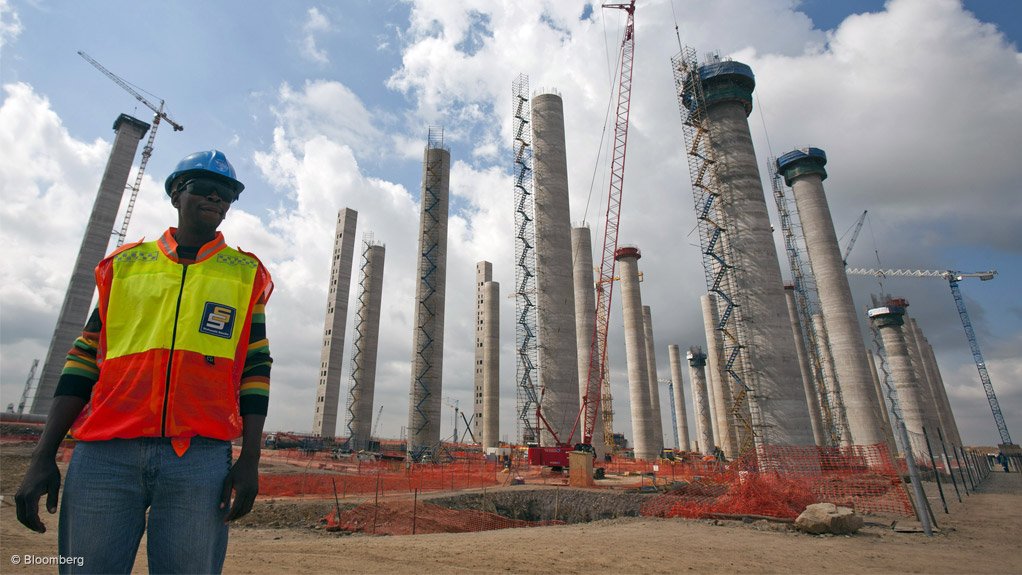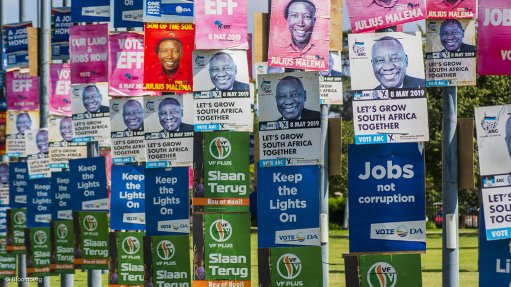Regional sharing of SA energy knowledge may prevent skills exodus
The South African government should look to establish enabling relationships with its counterparts in the rest of Africa, through which energy sector-related information and skills can be shared and, in that way, made operable, thus inhibiting the export of the local skills base and aiding in continental energy infrastructure development.
During a panel discussion at the New Partnership for Africa’s Development Infrastructure Africa conference, on Wednesday, local gas development company iGas CEO Dr Mike de Pontes said there was a faction of skilled South Africans in the energy industry, who were starting to look to energy projects in neighbouring States, such as Mozambique, for employment.
He noted that these largely entrepreneurial individuals, who had been trained by established energy companies, such as Eskom and Sasol, were now looking to establish their own businesses, possibly in countries in which there were an abundance of energy projects.
“Government-to-government interactions would allow these individuals to work in other countries, such as Nigeria, without the threat of their skills being lost to the country permanently. We don’t want to lose local skills to the diaspora, so, as a country, we need to allow for a bigger understanding of regional cooperation in this regard,” he commented, adding that the facilitative function of the State was critical.
Absa Capital Power and Energy head Omar Vajeth added that, while there remained an energy sector skills shortage in the country, he had observed an “explosion” in skills in the last few years.
He said this had primarily developed as international companies looked to invest in South Africa’s developing energy sector and had, in turn, transferred global energy industry-related technical and financial expertise.
Energy consultant Ronke Onadeko, who was involved in the Facility for Oil Sector Transparency (Foster), in Nigeria, added that the development of local skills, as opposed to the temporary import of foreign know-how, would further ensure that energy-related revenues remained in the country.
“As Foster, we are currently introducing technocrats from outside the country to enable the government to better understand the energy industry and, as a consequence, to introduce supportive legislation and boost local skills capacity,” she said.
The Foster programme, which was initiated in 2011 and would run through to 2015, was a technical assistance programme aimed at the government of Nigeria and Nigerian energy institutions. The programme is managed by Oxford Policy Management in partnership with the Revenue Watch Institute and the Centre for Study of the Economies of Africa.
Its aim is to improve the management of Nigeria’s oil, gas and extractives sectors at the federal level, to ensure that revenues from natural resources were channelled to spending and investment for development outcomes.
“More initiatives such as Foster are required on the continent to fully enable the energy sector,” said Onadeko.
INDEPENDENT POWER PRODUCER’S PROGRAMME
Commenting on South Africa’s energy sector regulatory environment, Vajeth stated that other African States should look to emulate South Africa’s supportive independent power producer (IPP) policy, which had catalysed competition and subsequently driven down tariffs, as well as the capital and operating costs of energy projects.
“People like to talk about the country’s gateway status into Africa in terms of foreign investment, but investors would never have looked to invest in the country’s energy sector had there not been strong government support, a solid process and a strong financial system,” he said.
In May 2011, the Department of Energy gazetted the Electricity Regulations on New Generation Capacity under The Electricity Regulation Act, which set out rules and guidelines applicable to the awarding of a tender to an IPP.
IPP firm Cennergi CEO Tom Garner, who joined the panel discussion on Wednesday, said the IPP policy had driven project efficiencies and, in turn, lowered rates and improved industry competitiveness.
“This was a great step by government, as it forced companies to drive efficiencies in all areas of its business if it wanted to be awarded a tender. As a private sector player, the policy meant that we had to sharpen our pencils,” he said.
Launched in 2012, Cennergi was one of South Africa’s first independent power production companies.
Comments
Press Office
Announcements
What's On
Subscribe to improve your user experience...
Option 1 (equivalent of R125 a month):
Receive a weekly copy of Creamer Media's Engineering News & Mining Weekly magazine
(print copy for those in South Africa and e-magazine for those outside of South Africa)
Receive daily email newsletters
Access to full search results
Access archive of magazine back copies
Access to Projects in Progress
Access to ONE Research Report of your choice in PDF format
Option 2 (equivalent of R375 a month):
All benefits from Option 1
PLUS
Access to Creamer Media's Research Channel Africa for ALL Research Reports, in PDF format, on various industrial and mining sectors
including Electricity; Water; Energy Transition; Hydrogen; Roads, Rail and Ports; Coal; Gold; Platinum; Battery Metals; etc.
Already a subscriber?
Forgotten your password?
Receive weekly copy of Creamer Media's Engineering News & Mining Weekly magazine (print copy for those in South Africa and e-magazine for those outside of South Africa)
➕
Recieve daily email newsletters
➕
Access to full search results
➕
Access archive of magazine back copies
➕
Access to Projects in Progress
➕
Access to ONE Research Report of your choice in PDF format
RESEARCH CHANNEL AFRICA
R4500 (equivalent of R375 a month)
SUBSCRIBEAll benefits from Option 1
➕
Access to Creamer Media's Research Channel Africa for ALL Research Reports on various industrial and mining sectors, in PDF format, including on:
Electricity
➕
Water
➕
Energy Transition
➕
Hydrogen
➕
Roads, Rail and Ports
➕
Coal
➕
Gold
➕
Platinum
➕
Battery Metals
➕
etc.
Receive all benefits from Option 1 or Option 2 delivered to numerous people at your company
➕
Multiple User names and Passwords for simultaneous log-ins
➕
Intranet integration access to all in your organisation





















